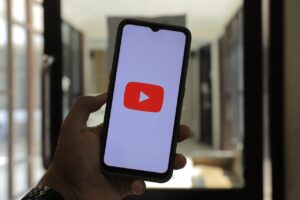
In the era of social media and digital self-expression, the desire to present one’s best self online has become increasingly prevalent. Teenage filter apps have emerged as a popular tool among youths, offering a way to transform their appearance and experiment with different looks. These apps, often using artificial intelligence and facial recognition technology, allow users to virtually alter their facial features, hairstyles, and even body proportions, creating a digitally enhanced version of themselves.
The Rise of Teenage Filter Apps
The popularity of teenage filter apps can be attributed to several factors. Social media platforms like Instagram, TikTok, and Snapchat have become a primary medium for self-expression and identity exploration, particularly for young people. Teenage filter apps provide a convenient and accessible way to enhance one’s appearance and create visually appealing content for social media consumption.
The apps also cater to the natural curiosity and experimentation associated with adolescence. Teenagers are drawn to the ability to transform their appearance, see themselves in different lights, and explore their personal style without the permanence of physical changes.
Potential Benefits and Risks
While teenage filter apps offer a fun and engaging way to experiment with one’s appearance, it is important to consider both their potential benefits and risks.
Benefits:
- Creative Expression: Teenage filter apps can serve as a tool for creative expression and experimentation with different looks. Users can explore various hairstyles, makeup styles, and facial features, expanding their sense of personal style and self-identity.
- Enhanced Self-Confidence: For some users, teenage filter apps can boost self-confidence by allowing them to present a more idealized version of themselves online. This can be particularly beneficial for teenagers struggling with body image issues or self-esteem concerns.
Risks:
- Unrealistic Beauty Standards: The widespread use of teenage filter apps can contribute to unrealistic beauty standards and body image issues. The constant exposure to digitally enhanced images can create a sense of dissatisfaction with one’s natural appearance, leading to feelings of inadequacy and low self-esteem.
- Privacy Concerns: Teenage filter apps often require access to personal data, including facial images and personal information. This raises concerns about data privacy and potential misuse of sensitive information.
Ethical Considerations
The use of teenage filter apps raises several ethical considerations, particularly regarding the impact on young people’s self-perception and mental health.
- Authenticity and Self-Acceptance: The emphasis on digitally enhanced appearances can blur the lines between reality and online personas. It is crucial for young people to develop a sense of self-acceptance and appreciation for their natural beauty.
- Responsible Use and Education: Parents and educators play a vital role in guiding young people towards responsible and healthy use of technology. Open communication about the potential risks and benefits of teenage filter apps can help foster a balanced approach to self-expression and social media engagement.
Conclusion
Teenage filter apps have become a prevalent part of the digital landscape, reflecting the desire for self-expression and experimentation in the online world. While these apps offer a creative outlet and can boost self-confidence for some, it is essential to acknowledge the potential risks, particularly regarding unrealistic beauty standards and privacy concerns. Responsible use, open communication, and a focus on self-acceptance are key to navigating the digital age of self-transformation in a healthy and empowering manner.












